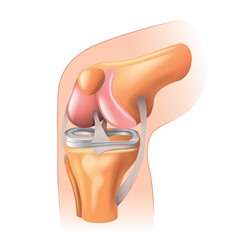Engineering simulation and modelling for better knee joint replacements
The TOTAL.KNEE (Development of a new generation of knee prostheses with enhanced lifespan features using advanced computational biomechanics) project has performed a survey of existing knee prostheses and evaluated related stresses. Following this, they redesigned the surfaces and aspects of the tibial tray that support and constrain the plastic components of the prosthetic knee. The researchers used finite element analyses for assessing several brands of implant. Geometries of the prosthesis including stem lengths, diameters and inclinations as well as attachment pegs for the femur were analysed. Mechanical stresses and wear generated on the tibial surfaces were estimated. Using the data obtained from the analysis, the team generated several geometries for the surfaces of the prosthesis to reduce wear. The tibial tray was also modified to evaluate the risk of mechanical failure. The researchers also assessed the extent of the coupling of bone and prosthesis. TOTAL.KNEE researchers developed a method to reconstruct geometries from computerised tomography and magnetic resonance imaging scans. The low quality images were enhanced with algorithms followed by hybrid segmentation for tissue identification. All aspects of the protocol are being incorporated into a virtual platform – BodyGiD – to represent the human body and implants. For successful bone remodelling, essential for longevity of the prosthesis, TOTAL.KNEE carried out a study of cell behaviour for the development of new strategies. A new model for cellular automata simulated cell behaviour, which was published in Advanced Modeling and Simulation in Engineering Sciences journal. TOTAL.KNEE research results have addressed many of the factors involved in knee prosthesis wear and consequent reduction in lifespan. The consortium expects that the improved geometries will give rise to marketable prototypes and products. The data produced will also increase the awareness of physicians on the utility of computer modelling for predicting the effects of implants in bone joints.







